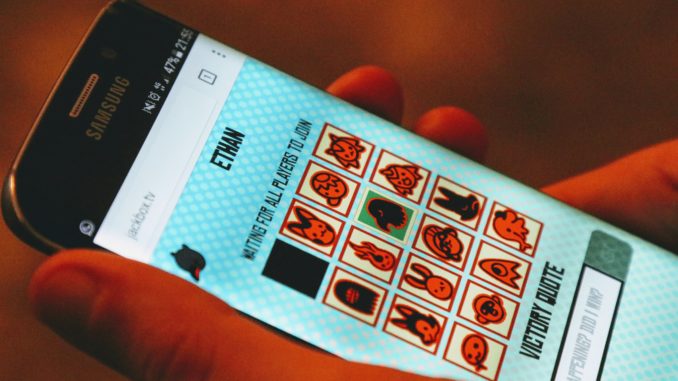
Two months into the COVID-19 stay-at-home order, Jess Sheely says the most challenging aspect of this period has been being physically apart from friends and family.
“There’s something about seeing people in person, being able to read body language, actually look people in the eye…I really miss it,” she says.
Jess is a theological student at Moore Theological College who also works at a local Presbyterian church in Sydney. Like many others, transitioning to working and studying at home hasn’t been an easy adjustment for her.
“I’ve had to make lots of decisions about various responsibilities and lots of variables have been unknown or in a state of flux. I’ve found that difficult and tiring, and I’ve missed having my team around me, to have that incidental time in the office, bouncing ideas off each other.”
While socially isolating, she’s found herself playing games online more often. These days, her go-to means of spending time with friends and family is through video chat while playing virtual board games like Sushi Go!, Codenames and Pictionary.
She’s far from the only one. Online gaming has seen a surge in popularity since March as the global pandemic led to lockdown measures being enforced around the world. An 82% rise in gaming compared to pre-COVID levels has been recently reported by US telecommunications company Verizon. Nintendo’s profits have increased more than three times their previous quarter, largely thanks to the well-timed release of their highly successful game, Animal Crossing: New Horizons, which sold at least 13 million units within six weeks.
Yea, usage is up on almost everything. Thanks go out to all the Ops/IT teams at all the companies that are working hard to keep everything running smoothly with all going on around them.
— Phil Spencer (@XboxP3) March 15, 2020
(Tweet from Microsoft Head of Xbox, Phil Spencer)
This is hardly surprising, given the restrictions in place that have confined millions to their homes and brought social events to a screeching halt. Boredom and our innate need for social interaction have led some down the path of amateur sourdough bread-making, and others to dance challenges on TikTok. So how is picking up a video gaming console or meeting friends online for a round of virtual charades any different?
Why play matters in a pandemic
Play is an essential part of who we are as humans. As children we learn and understand the world through play. As adults, playfulness permeates our conversations, work and art. Sport and competition exist as integral parts of life and culture. We naturally gravitate towards play.
Factor in a historical global health crisis where there are more questions than answers about a strange new virus, where time seems to simultaneously stand still and fly at warp speed, where we are told to care for our loved ones by staying away from them. If there’s ever been a good time to reach for our instinctual cocoon of play, it’s now.

Dutch cultural theorist Huizinga, in his 1938 book, Homo Ludens, says this about the characteristic of play:
It creates order, is order. Into an imperfect world and into the confusion of life it brings a temporary, a limited perfection. Play demands order absolute and supreme.
As every other online advert these days will unnecessarily tell you, we are living in unprecedented and uncertain times. It’s no wonder we are quick to turn to the consistency and familiarity of a game, where we are afforded a momentary chance to imagine a less chaotic alternative reality.
Courtney Kidd is a licenced clinical social worker and PhD student at the University of Edinburgh, who specialises in video games and military simulations, and their relationship to empathy and impulsivity. She says that because our view of venturing to the outside world, even for everyday activities like going to the supermarket, has now become associated with a sense of danger, world-building games such as Animal Crossing and Second Life give people a sense of normalcy.
“It’s this world where we get to do those same things and so it’s realism and escapism kind of blended into this beautiful reality,” she says.
With this in mind, it is interesting to then look at the morbidly peculiar spike in popularity of the game Plague Inc., in which users are tasked with developing and spreading a deadly disease in an effort to wipe out the human population.
Kidd likens this to a self-imposed form of prolonged exposure therapy, as a counterbalance to the loss of autonomy and helplessness felt in this pandemic. “These games actually give you that control back over the very thing that you’re afraid of,” she says.
The relief of ‘Game Over’
A defining feature of games, according to Huizinga, is it is always limited to a time and place.
Play begins, and then at a certain moment it is “over”. It plays itself to an end. While it is in progress all is movement, change, alternation, succession, association, separation.
The appeal of games then, be it an online trivia quiz or a World of Warcraft battle, is that at some point, there is a conclusion to the story.
“With COVID-19, we don’t have an ending yet, we don’t know when something’s going to come down the pipeline to help us, or if anything will…whereas these games can offer an idea of, ‘Well, it doesn’t have to be that way’,” Kidd says.
#Playaparttogether
In March, the World Health Organisation (WHO) teamed up with the gaming industry to launch the #playaparttogether campaign, which encourages players to practice social distancing while staying connected to each other through games.
The social nature of games should not be understated. For people like Jess Sheely, the remedy for this period of social isolation comes in the form of a board game played with friends over Zoom.
Huizinga imagines the ‘play-community’ in a game as uniquely transformative in creating social bonds:
But the feeling of being ‘apart together’ in an exceptional situation, of sharing something important, of mutually withdrawing from the rest of the world and rejecting the usual norms, retains its magic beyond the duration of the individual game.
Confined to only interacting with our social circles through a screen, we continue to engage in being apart together, while being apart, together. 80 years later, Huizinga’s concepts ring true more than ever, in circumstances that he likely never would have imagined.
Sure, games are there to provide distraction and comfort, but they also help us practice facing our fears, form and strengthen social bonds, and maybe even give us a bit of hope in an anxiety-inducing time of crisis. When all of this is over, will COVID-19 have changed the way we look at games and how we rely on them? We’ll just have to see how everything plays out.





Be the first to comment